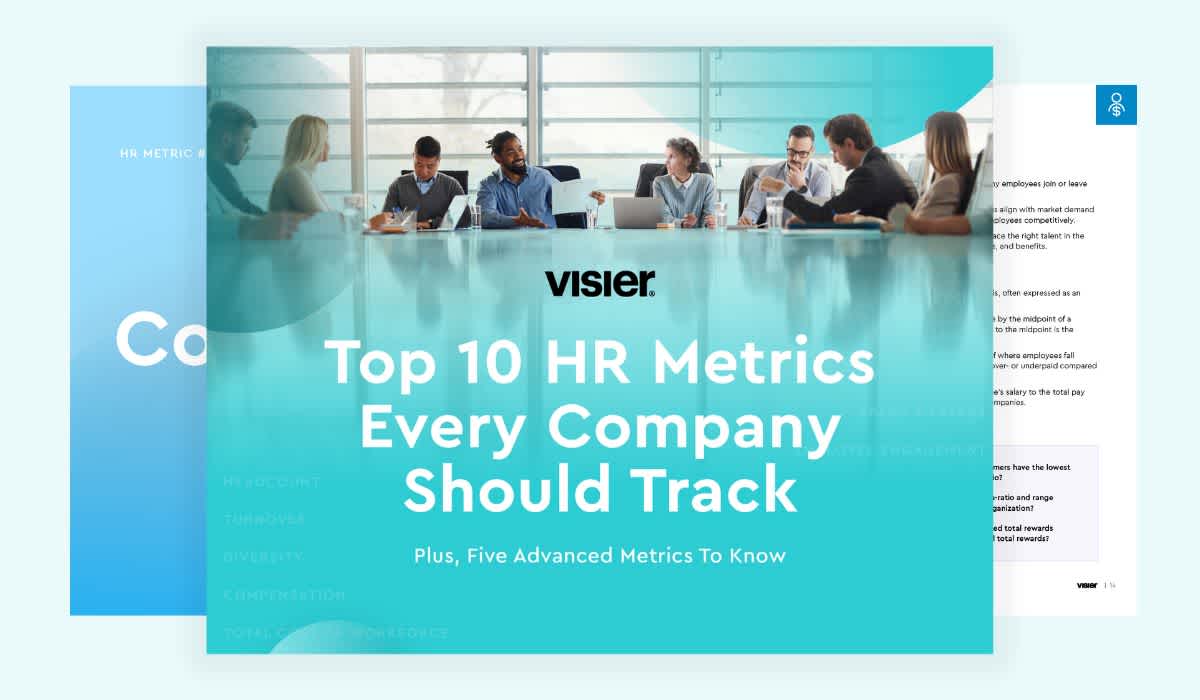10 Hot Takes From Outsmart 2022
Outsmart 2022 brought together experts to discuss trends and innovations in people analytics. Read the top takeaways from the two-day event.
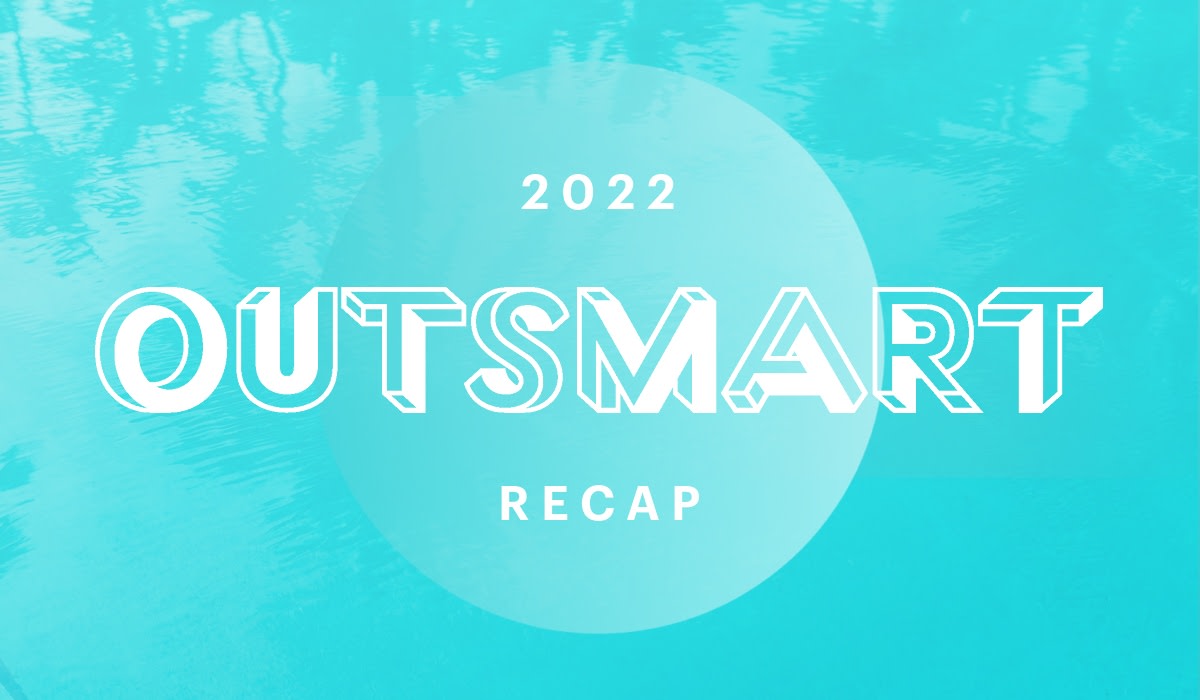
Outsmart 2022 virtually brought together experts to a massive two-day event to discuss the latest trends, issues, and innovations around people analytics. Below are just a few of the hot takeaways. Be sure to catch all the inspiring and actionable advice that was shared—every session is now available to watch on-demand (at no cost).
1. Overcome the “last mile problem” of getting people data insights to managers
Ian Cook, VP, People Analytics, Visier
“Data is just data at the end of the day. It’s what we do with it that counts,” said Ian in his session, describing the “last mile problem” of putting people analytics and insights directly into the hands of people managers. His talk detailed how to tackle the data analytics marathon so your team can focus more on successfully completing that last mile to better people and business decisions.
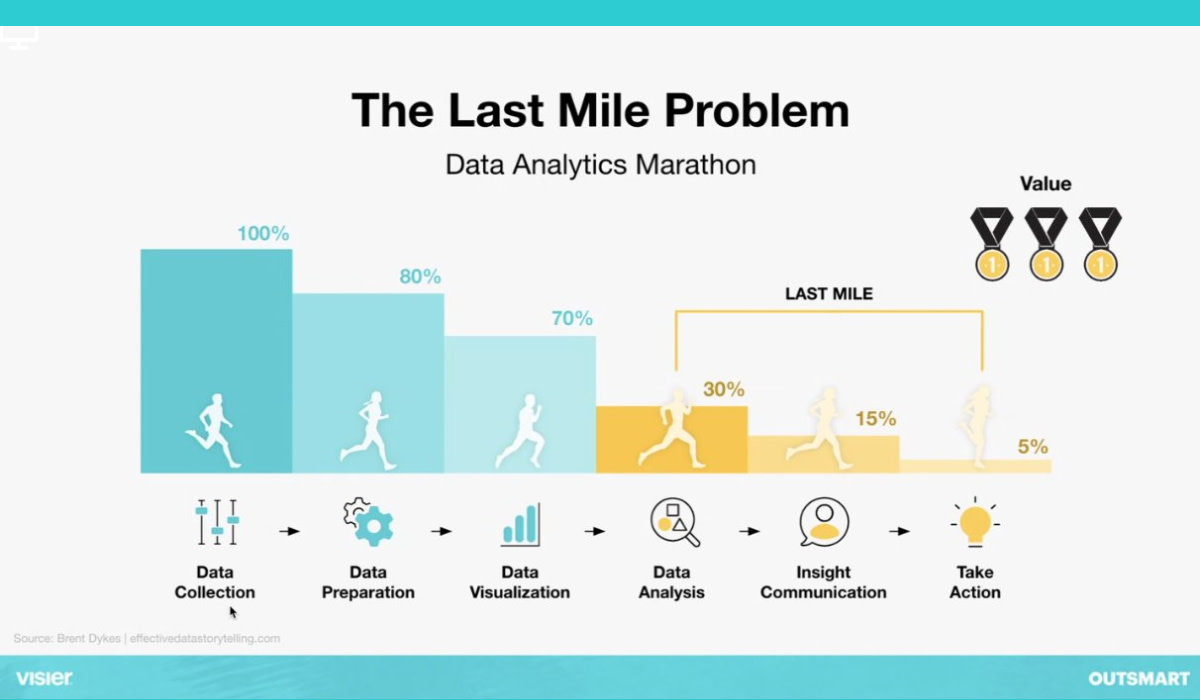
Data analytics is a marathon, not a sprint.
2. Democratizing data is the key to remaining competitive
Dr. Anna Merritt, Head of People Analytics, Block Inc.
Jennifer Smith, Senior People Analytics Consultant, Visier
Lydia Wu, Head of Talent Analytics and Transformation, Panasonic
How do you roll out a massive analytics training program to managers who think about HR, but, when push comes to shove, treat HR as a secondary topic? Having the ability to rapidly create and distribute the people data that business leaders every day is critical for remaining competitive. This session dove into how two Visier customers, Panasonic and Block, successfully democratized data at their organizations and the results they achieved.
3. The next C-Level superpower? Transforming people analytics to business analytics
Stacia Garr, Co-founder, RedThread Research
Gregory Till, CPO Providence
Mark Smith, VP Workforce Strategy & Analytics, Providence
Stacia shared her recent research on how the C-Suite, CHROs, and people analytics leaders must partner together to deliver meaningful business insights to line of business leaders. In this session, Stacia is joined by Greg Till and Mark Smith from Providence, who shared how they brought this collaborative dynamic to life at their healthcare organization.
4. A more inclusive workforce experience starts with good design
Lexy Martin, Principal, Research and Customer Value, Visier
Dr. Melissa Arronte, Solution Principal, Medallia
Inclusion measurement is often at a high level and too focused on the company rather than the employee perspective. This offers limited context; the inclusion experience is more than just feelings, it’s participation. In this session, Lexy and Melissa discussed the sources of inclusivity data and how to use these on the moment’s in the employee experience that will have the most impact.
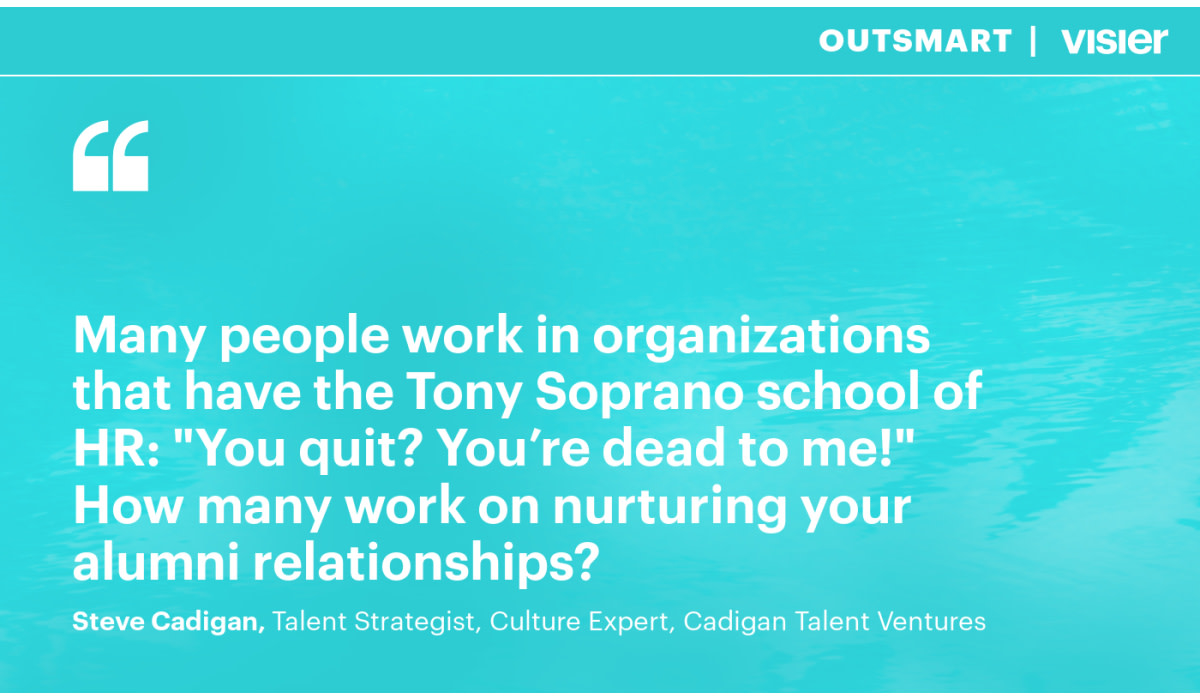
5. Human-centered and data-driven workplaces should go hand in hand
Dan Riley, a co-founder of Radicl
A new kind of leader has risen: the “how can I help YOU leader.” They are more concerned with individual well-being and they’re prepared to help, including by using predictive people analytics to understand what’s working at the organization. This leader knows that data must be a part of a successful human-centered workplace. Dan provided even more ideas for being human-centered in his electrifying talk.
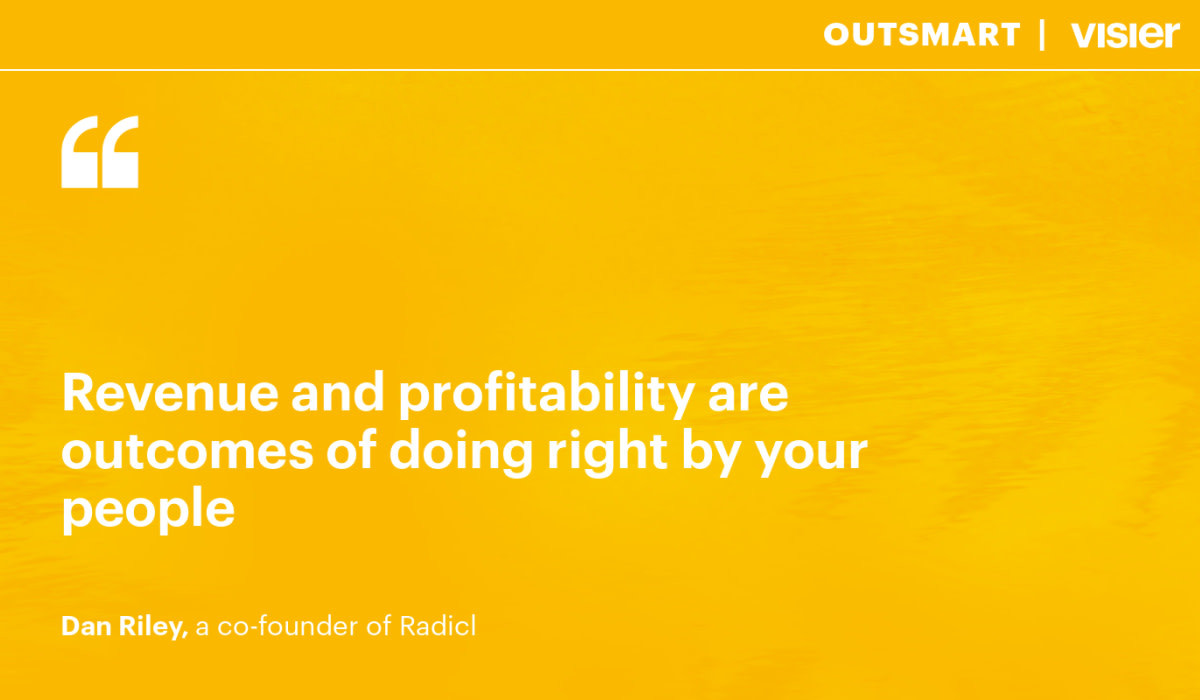
6. Discomfort is the price of a meaningful life
Susan David, Ph.D, Harvard Medical School
Emotions are often seen as either good or bad, yet emotional agility is critical for the future. When we don’t allow people to show up and be seen, we lose the ability to innovate, collaborate, and be inclusive in our careers and our lives. Susan talked about how to cultivate the emotional resilience every leader and employee needs to overcome turbulent times and live more meaningfully.
7. An internal and external hiring strategy helps you win in an employee-flavored job market
Jayne Landry, Chief of Staff, Visier
Charles Mah, Chief Customer Officer, iCIMs
Charles and Jayne discussed why hiring in today’s market is a mix of looking outside in—which involves really understanding the skills and profiles of success of the talent you need to hire—and inside out. It’s about fostering the talent you already have and balancing that with activity outside to give you a competitive edge against anyone else.
8. Hybrid work can have productivity and culture—it just takes a different “recipe”
Erik Otteson, Head of People Ops & Analytics, 10x Genomics
Tina Jones, Senior Vice President, Global Human Resources, Cadence
Erin Spencer, Senior Consultant, Deloitte
The pandemic forced many employees to work remotely, whether they were ready or not. It’s now been two years, and expectations have shifted around remote and hybrid work and how this affects company culture. How can organizations ensure their people are engaged, productive and not susceptible to inadvertent bias whether in the office or not? Panelists from Deloitte, 10x Genomics, and Cadence Design Systems discussed their lessons learned from hybrid work and what to expect next.

9. Passive data finds the problem, active listening helps fix it
Adam Binnie, Chief Product Officer, Visier
David Yang, SVP, Visier
Passive data comes from systems that track who we collaborate with and whether that collaboration contains specific traits like praise, conflict, or tasks. Adam and David explained how AI can use patterns within this data to inform leaders about burnout, leadership, detachment, toxicity, and more within our organizations.
(Learn more about Visier’s asset acquisition of Yva.ai, which was announced during Outsmart. Yva.ai’s Collaboration Analytics adds a vital employee perspective that completes the full Visier picture of the human truth within an organization)
10. The future of work relies on skills, not job roles
Ravin Jesuthasan, Futurist, Author
Ravin Jesuthasan, author of Work Without Jobs, says that the pandemic forced a 20-year trend in digitalization to happen in two years. How can organizations redesign work to meet people where they are, rather than forcing talent to comply with “one size fits most?” Navigating this post-pandemic reality requires a new work operating system that frees workers from the traditional boundaries of jobs. In his keynote, Ravin Jesuthasan shared the insights, framework, and case studies to accomplish this.
There’s more Outsmart 2022 to binge
It��’s difficult to recap the wealth of information shared at 2022 Outsmart, but fortunately, the entire event is now available on demand here. Watch (and rewatch) every session in full and be sure to share with your colleagues and friends!

